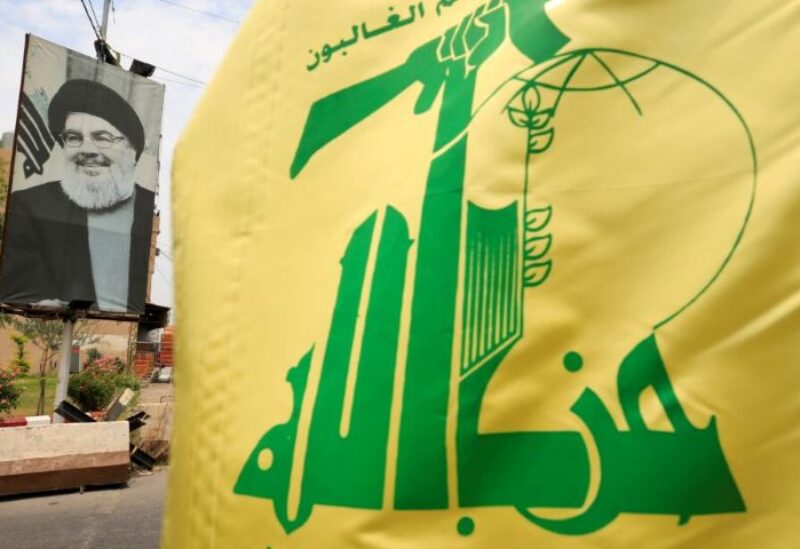
Hezbollah militia flag
A foreign ambassador in Beirut wonders about what Hezbollah fears most?The results of the parliamentary elections, that the opposition of the current authority is expected to win? Or is he afraid of the international understandings’ developments with Iran? Whether regarding its nuclear program, or its influence in the region and the influence of its allies, whether in Lebanon or the Arab countries, where Iranian interference in Arab affairs is at its peak.
The ambassador told “Sawt Beirut International” that the external calming factors regarding the Lebanese situation is on, and the electoral elections are expected to occur, as long as the internal powers keep on this calm, regarding the issues raised, and not go in the direction of political or security obstruction.
To the ambassador, the continuation of three factors, will maintain the international calm, and overcome any other options that might be imposed by those who have no interest in pulling Lebanon out of collapse. First, The international auspices of Lebanon’s understanding with the International Monetary Fund, which is the key in saving the economic situation. Second: The continuation of American mediation regarding the demarcation of the maritime borders between Lebanon and Israel, this also, is another indicator of international interest, and it is equally important to achieve the desired reforms that were set as a condition for aid. And the third, the Americans, as well as the French, and the Europeans, are always there to pressure and calm the situation internally. And this direction is influenced by the current climate, where discussions with with Iran continue to urge it sit at the negotiating table, and return to the nuclear agreement signed in 2015.
He considers that change through the elections, seems inevitable, but the powers of “weapons” are already betting that if they are not able to “disrupt the situation,” they will press politically, and may reach to the security threat, in order to stick to the equation after the elections that Lebanon is based on consensus, and that all matters are consensual in the composition of the authority. This is what happened when the sovereign March 14 team won in previous parliamentary elections. Hence, it is important to address the problem of weapons outside the framework of the state, because if it is not addressed, it will remain functioning, and posing a threat to any democratic path. Therefore, the sovereign forces are moving towards the capitals of the world, in parallel with the preparations for the elections, to explain the Lebanese situation and the political and security challenges facing the people.
He asserts that what the “party that owns weapons” fears most, is the details of international solutions with Iran in the nuclear negotiations stage, and beyond this stage, as the influence of Iran and its allies in the region will be the focus of discussion. That is, the allies are fully aware that their fate is linked to international-regional solutions, at a time when it is certain that Washington will not leave Lebanon to any other party, neither international nor regional, and will not accept that it be a “consolation prize” for any profress, in light of the negotiations with Iran.